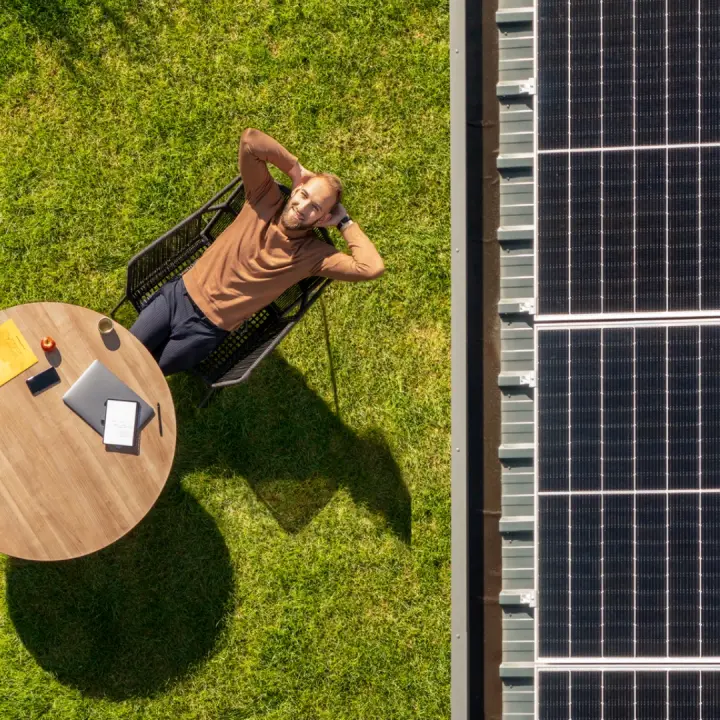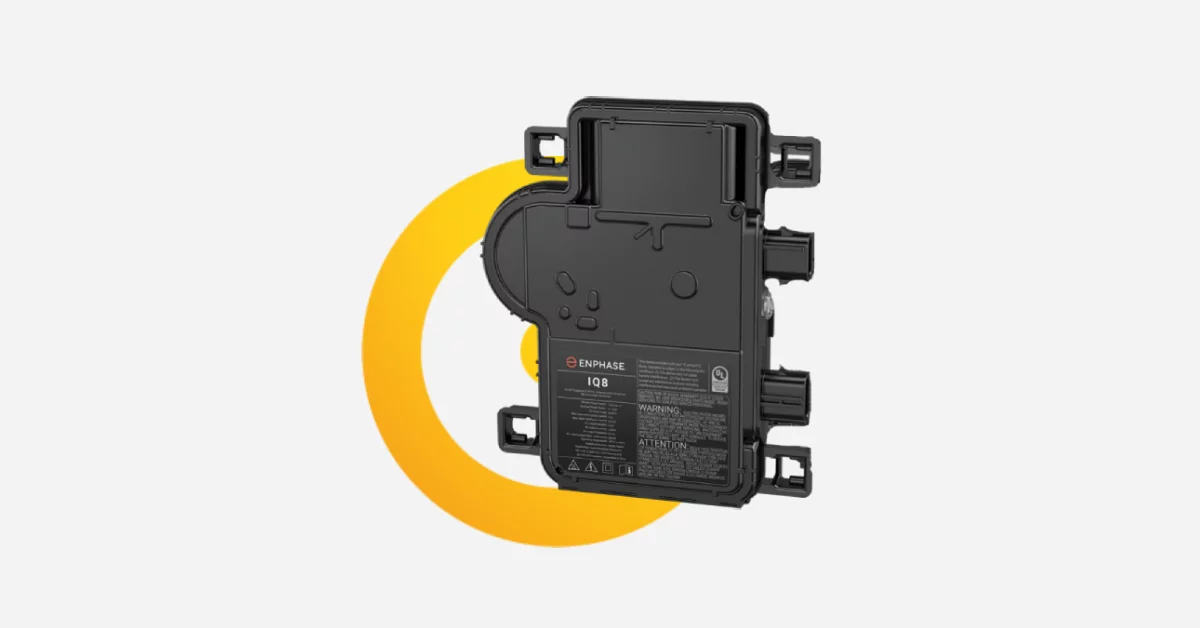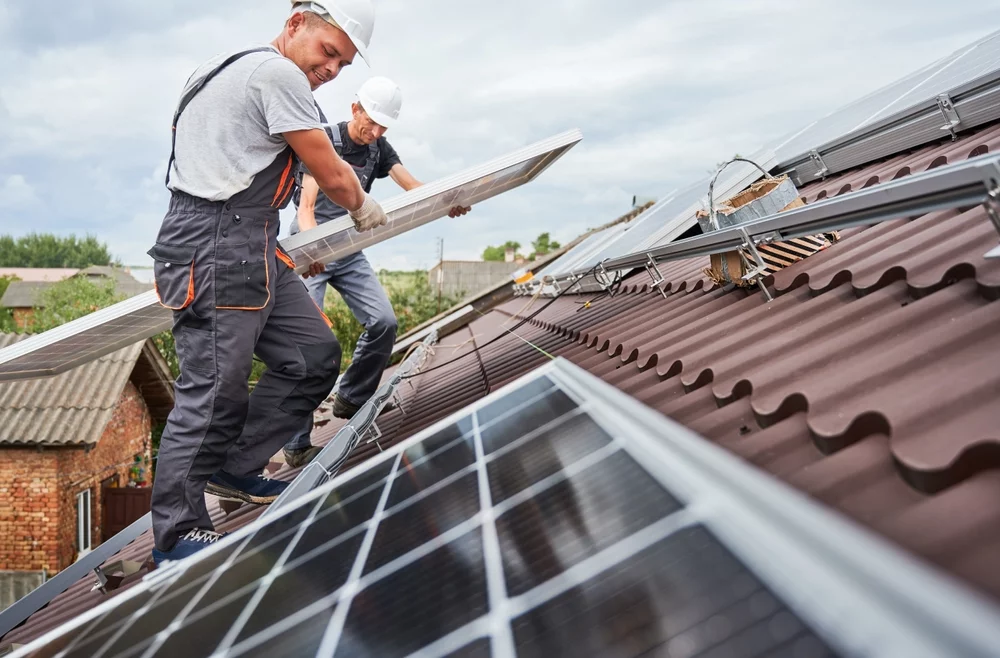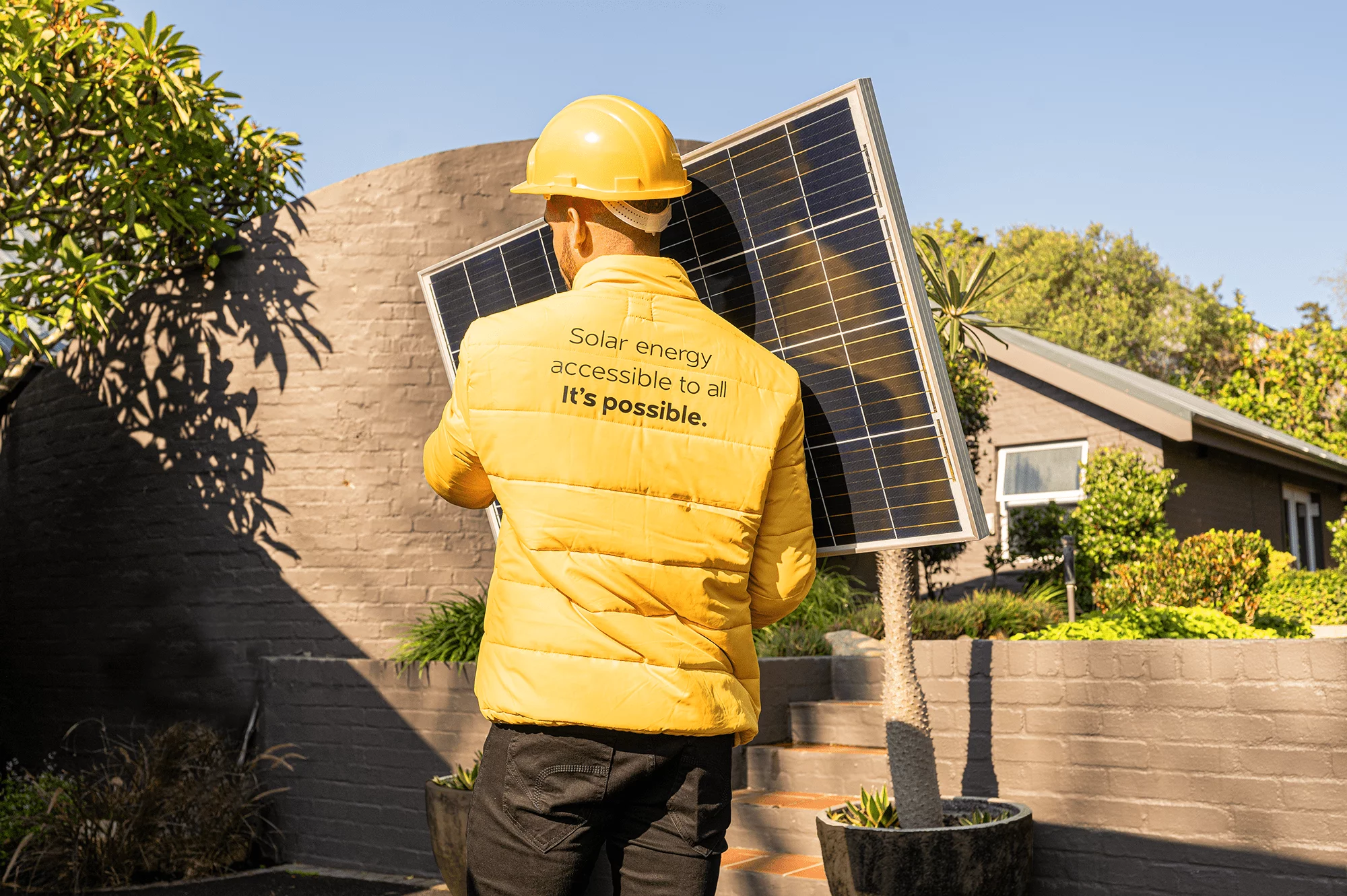Solar panel comparison UK Guide: How to choose the best solar panels
Thinking about going solar but don’t know where to start? You’re not alone. When it comes to choosing the best solar panels, there are so many options on the market, finding the right fit for your home or business can feel overwhelming.
But here’s the good news: it doesn’t have to be.

The best solar panels combine three key ingredients:
- high efficiency,
- rock-solid reliability, and
- strong warranties
These qualities ensure your solar PV system delivers maximum energy savings while standing the test of time. But it’s not just about the panels. Indubitably, professional solar panel installation by certified experts is equally important to get the most out of your investment.
So, how do you make the final call with all the choices out there? That’s exactly what this guide is for.
On this page, we’ll answer the 10 most common questions people ask when exploring solar options, including:
- Will any roof work for solar panels?
- Which solar panels are the best?
- What Do ‘kWp’ and ‘kWh’ Mean?
- And much more!
By the time you’re done reading this, you’ll know exactly how to pick the right solar setup for your needs.
Let’s begin:
- How to choose solar panels: 10 questions to ask yourself before you buy solar panels
- Q1 (roof): Are solar panels suitable for my roof in the first place?
- Q2 (types & efficiency): Which type of solar panel is best?
- Q3 (quantity): How many solar panels do I need?
- Q4 (watts): What do ‘kWp’ and ‘kWh’ mean in a solar PV system?
- Q5 (lifespan): How long will PV panels last?
- Q6 (inverter): What type of solar inverter is best for solar?
- Q7 (size): What size of solar panels do I need for my home? Are bigger solar panels better?
- Q8 (upkeep): Do solar panels need maintenance?
- Q9 (cost vs savings): When are solar panels worth it?
- Q10 (installation): Should I install solar panels by myself or hire a professional?
- Final Considerations
- FAQs
- The bottom line
How to choose solar panels: 10 questions to ask yourself before you buy solar panels
Choosing solar panels doesn’t have to be complicated. By asking the right questions, you can narrow down your options and find just the right setup for your home and energy needs perfectly.
Here’s what you should keep in mind:
Next, we’ll talk about each of these questions in more detail, so you’ll know exactly what to look for.
Q1: Are solar panels suitable for my roof in the first place?
Before you decide to install a solar panel system, it’s important to ask: Is my roof suitable for solar panels? Don’t worry! Most roofs can work with a few considerations and adjustments. Here’s what to check:
First, think about your energy usage and your roof’s size. A typical 3.5kW system needs around 20m² of space, so make sure you’ve got the room. Next, consider your roof’s direction and pitch. South-facing roofs are ideal for soaking up sunlight, but modern solar panel systems can still perform well on east, west, and even a north-facing roof. And while the perfect angle is between 30-40°, mounting systems can be adjusted to optimise performance if your roof is steeper or flatter.
You’ll also want to watch out for shading from trees, chimneys, or nearby buildings. This is because less shade means better efficiency. Your roof material matters too: asphalt shingles and metal roofs are great, but most materials will work as long as your roof is sturdy and in good condition.
Finally, check local rules. Most homes don’t need planning permission, but if you’re in a conservation area or have a listed building, it’s best to confirm with your local council.
To get a clear idea, try our Soly Configurator or consult a pro. A professional can analyse your roof and location to maximise your solar potential—even in northern parts of the UK, where today’s high-efficiency panels still shine.
Q2: Which type of solar panel is best?
The real question isn’t just “Which solar panel is best?” but “Which one is best for me?” The answer here is going to depend on what your needs happen to be, budget, and available roof space. Here’s a look at the three main types of solar panels:
- Monocrystalline panels (mono panels) are the top performers. They’re incredibly efficient. This is because they convert sunlight into electricity at a rate of over 20%. This makes them ideal if you’ve got limited roof space. Plus, they look sleek with their all-black finish.
- Polycrystalline panels (poly panels) are a great solid middle ground. They’re more budget-friendly and work well if you’ve got plenty of roof space. While their efficiency is slightly lower (15-17%), they still do a solid job of lowering your electric bills.
- Thin-Film panels are lightweight and flexible, great for unique setups like RVs or flat roofs. But they’re the least efficient (10%-12%), so you’ll need more panels to get the same amount of energy output.
Whether you’re after maximum solar panel efficiency or the best value, there’s a panel out there for you.
Q3: How many solar panels do I need?
Figuring out the number of solar panels you’ll need comes down to two things: how much electricity you use and the size of your roof. Don’t worry, this isn’t as complicated as it sounds!
It all starts with your energy usage
The more electricity you use, the more solar panels you’ll need to meet your energy goals. Take a look at your past electricity bills to see how much energy you consume in kilowatt-hours (kWh) per month or year. For context, the average UK household uses around 3,800 kWh per year.
If you want to offset all or most of that with solar power, the number of panels required will depend on their efficiency and output. As mentioned, higher-efficiency panels generate more power, meaning you’ll need fewer of them to cover your usage.
Then, you’ll factor in your roof size and sunlight exposure
Roof size is the next big piece of the puzzle. A south-facing roof is ideal because it gets the most sunlight throughout the day, but east- or west-facing roofs can still do the job with a few more panels.
For a typical UK home with a 3-4kW system, you’ll need about 8-10 panels, which requires roughly 15-20m² of roof space. Got a smaller or shadier roof? Remember to opt for high-efficiency panels to maximise your energy output within limited space.
For a personalised estimate, stick to tools like Soly’s Configurator
To make things even easier, remember that our Soly Configurator gives you a personalised estimate based on your energy usage and roof details. No more guessing or complicated calculations! We’ll help you design a solar panel system that’s just right for your home, giving you sheer confidence in your solar investment.
Whether you need 8 panels or 18, the right system for you is out there. And with tools and professional help available, you can make sure you get an exact answer to the question, “How many solar panels do I need?” No more, no less.
Q4: What do ‘kWp’ and ‘KWh’ mean in a solar PV system?
If you’ve started exploring solar, you’ve probably come across terms like kWp and kWh. At first glance, they might seem like confusing technical mumbo-jumbo, but they’re actually pretty simple once you break them down. Here’s what they really mean:
- Kilowatt peak (kWp) measures your system’s maximum potential power on a sunny day under perfect conditions. Think of it as your system’s top performance.
- Kilowatt-Hour (kWh) is the actual energy generated or used over time (what you’ll see on your electricity bills).
Basically, in a nutshell:
- kWp shows how powerful your system could be.
- kWh shows how much energy your system actually produces and uses.
Understanding these helps you choose the right solar PV system for your energy requirements. While kWp tells you the system’s potential, kWh is what really impacts your savings.
Factors affecting energy output
- Low light performance: High-quality mono panels perform well even on cloudy days.
- Temperature coefficient: Panels with a low coefficient handle heat better, keeping energy production high.
- Heat dissipation: Efficient panels stay cooler and perform more consistently.
Once you’ve got these basics down, you’ll be set to get the most from your solar panels.
Q5: How long will PV panels last?
One of the first questions people ask when considering solar is, “How long do solar panels actually last?” Well, the good news is solar panels are built to be tough and last quite a long time. In the UK, they typically last between 25 and 30 years, but many solar panel systems continue to generate electricity well beyond that. The power they generate will just be at a lower efficiency, losing around 0.5% to 1% each year.
To get the most out of your solar system, go for durable, high-quality panels like monocrystalline, which can handle tough weather. And don’t forget to check the warranty! A professional solar panel installation that only needs occasional maintenance will help keep your panels running smoothly for decades to come.
Q6: What type of solar inverter is best for solar?
When it comes to installing solar panels, the solar inverter plays an ever-important role. Think of it as the heart of your solar panel system. Its job is to convert the direct current (DC) electricity generated by your panels into alternating current (AC) electricity that powers your home. Without it, your solar panels wouldn’t work for day-to-day energy requirements.

But which inverter should you choose? Let’s take a look at the options below:
- String inverters are made to be cost effective for simple setups– String inverters connect multiple solar panels in a series, or “string,” to a single inverter. This setup is cost-effective and works well for uniform roof spaces with no shading issues. However, if one panel in the string underperforms, because of shade or dirt, it affects the output of the entire system.
- Microinverters are perfect for shading or complex roofs- Microinverters are installed directly on each solar panel. This allows them to work independently. This means that even if one panel is shaded or dirty, it won’t drag down the performance of the others. They’re ideal for homes with shading issues or roofs where panels face different directions. At Soly, we recommend Enphase microinverters for their reliability and long lifespan. Plus, they come with a 25-year guarantee, giving you peace of mind for decades.
- Hybrid inverters provide flexibility with battery storage- If you’re thinking about a solar battery to store excess energy, a hybrid inverter can be a great choice. It combines the functions of a traditional string inverter with battery compatibility.
Q7: What size of solar panels do I need for my home? Are bigger solar panels better?
When it comes to solar panels, size definitely matters. But bigger isn’t always better. The right solar panel size for your home depends on two main things: your energy needs and your roof space.
If your roof is small, go for high-efficiency panels like mono panels. These generate more electricity per square metre, so you’ll need fewer of them to meet your energy demand. On the other hand, if you’ve got plenty of roof space, you could opt for larger, less efficient panels to save on initial cost of solar panels.
Keep in mind that bigger panels often have higher wattages because they house more photovoltaic cells, but panel efficiency also plays a crucial role in energy production. It’s all about finding the right balance for your home and budget.
Q8: Do solar panels need maintenance?
Solar panels are about as low-maintenance as it gets. Once they’re installed, they quietly do their job. They soak up sunlight and convert it into clean electricity without much fuss at all. But like anything exposed to the elements, a little upkeep now and then can go a long way in keeping your system running efficiently.
Most of the time, they only need an occasional check to make sure they’re free from dirt, debris, or shading from nearby trees or chimneys. Since they work best with direct sunlight, keeping them clean helps maintain optimal energy production.
The really good news? With Soly, you don’t even have to worry about cleaning. Our panels are designed to let rain do the job for you, keeping them in top shape. Plus, they’re built to handle extreme weather, so they’ll keep generating power for up to 30 years with minimal maintenance.
Q9: When are solar panels worth it?
With electricity costs constantly rising, there’s never been a better time to consider installing solar panels. We already realise they help you lower your electric bills, reduce reliance on the grid, and even cut your carbon footprint. But are they worth it for you? To know that, we need to look into the finite details.
In the UK, the average payback period for a solar panel system ranges from 7 to 15 years. After this, it’s all savings, as your panels continue generating free solar power for decades. Curious about your potential savings? Use our Soly Configurator to calculate the upfront cost of solar panels and see how much you could save.
If you’re worried about the initial solar panels cost, here are some ways to make your investment more affordable:
- Solar panel grants: Check if you’re eligible for government support with solar panel grants.
- 0% VAT: Homeowners can take advantage of the 0% VAT rate on solar panel installation.
- Financing options: Spread the cost with flexible payment plans.
If you’re looking to lower energy bills, take control of your energy usage, and invest in renewable energy, solar panels are absolutely worth it.
Keep on reading: Pros and cons of solar panels
Q10: Should I install solar panels by myself or hire a professional?
DIY solar panel installation might seem like a way to save money. However, it comes with some serious risks that you need to keep in mind. Without the right tools or expertise, mistakes can happen. Things like improper wiring or poor placement can hurt your system’s efficiency or even damage your panels. Plus, if you go the DIY route, you’ll miss out on financial perks. This includes things like reduced VAT and incentives that only apply to professionally installed solar PV systems.

At Soly, we’ve got you covered. Our certified and accredited solar installers handle everything—from assessing your roof and selecting the best panels to ensuring a safe and efficient installation. With us, you’ll get a system that’s built to last, helping you maximise your energy savings and enjoy peace of mind.
Final Considerations
Before you go all-in with solar, it’s certainly worth thinking about a few extra details to make sure that your system suits your long-term goals to the fullest:
Solar batteries
A solar battery lets you store the excess energy your panels generate during the day, so you can use it at night or during peak hours. This boosts your energy independence. Additionally, this will help you save even more on your energy bills. So, whether you’re thinking about going fully off-grid or you just want the added flexibility, a battery system is a smart option.
Monitoring systems
If you want to keep a good eye on your solar setup, monitoring systems are the best way to do so. They let you track your panels’ performance in real-time. You’ll be able to see how much energy you’re producing and can catch any issues early. With upcoming features like our Soly Brain, smart home integration will make it even easier to optimise your energy use.
Aesthetics matter
Solar panels can change the look of your home, but they don’t have to stand out. If you want a sleek, modern appearance, mono panels with their all-black design blend in beautifully. In fact, they add a stylish touch to your roof.
Think about the future
Even if you’re starting small, think about your future energy demands. Planning for potential additions, like adding more panels or even a battery can save you time and money later on.
By keeping these factors in mind, you’ll be sure your solar setup is functional and fits right into your lifestyle and future plans.
FAQs
How do I know what solar panels to buy?
Choosing the right solar panels doesn’t have to be overwhelming. That’s what we’re here for. At Soly, we take the guesswork out of it. We’ll look at your specific needs, roof space, and budget to recommend the perfect solar panel system for your home.
From start to finish, we’ll guide you every step of the way to keep things as simple as can be and stress free.
And with our certified installers, you can count on a top-notch installation that maximises your system’s energy production and cuts down your energy bills. With Soly, you’re getting solar panels but you’re also getting a custom solution that fits your life.
What to consider when selecting a solar panel?
When choosing a solar panel, there are a few key things to keep in mind. First, consider efficiency. Of course, high-efficiency panels like monocrystalline are great for producing more power in less space. This is very important if you have limited roof space.
Next, think about durability. You’ll want panels with sturdy frames that can handle the UK’s unpredictable weather. Don’t forget about the warranty either. A solid warranty is going to let you know that your investment is protected for the long haul. Finally, if aesthetics matter, go for sleek, all-black panels for a modern, stylish look that blends well with your home.
Which is the most efficient solar panel?
Monocrystalline panels are the clear leaders when it comes to efficiency. This is because they often hit over 20%. Made from a single silicon crystal, they’re ideal for getting the most energy out of limited roof space. When it comes to how to choose solar panels, if you truly want maximum power in a compact setup, then these are the panels for you.
Which brand solar panel is best?
At Soly, we install Jinko Solar’s monocrystalline panels for a good reason. They’re designed to last, delivering top-notch efficiency and durability, even in the harshest weather. These panels consistently perform, making them a smart, long-term investment.
When you choose Jinko with Soly, you’re getting solar PV panels that provide you with a reliable energy solution that will serve you well for many years to come.

The bottom line
Switching to solar is one of the smartest moves you can make! This is true for both your wallet and the planet. With the right panels, expert installation, and a focus on your long-term goals, you’ll enjoy decades of savings and sustainable living.
Whether you’re looking to slash your energy bills, shrink your carbon footprint, or boost your home’s value, solar PV panels are a powerful investment. And with today’s technology, flexible financing, and perks like 0% VAT, there’s never been a better time to go solar.
Ready to make the switch? With the right support, you’ll be tapping into the sun’s energy in no time. Here’s to a brighter, greener future!
Why choose Soly for your solar panel needs?

At Soly, we’re all about making the process of how to choose solar panels easy for everyone. Here’s how we’re doing things differently:
- Affordable financing: We understand that upfront costs can be a barrier to going solar. That’s why we offer convenient financing options through our partnership with Hometree Finance, helping to make solar energy more affordable for UK residents.
- Referral benefits: Soly offers the best referral scheme in the solar market. As a Soly customer, you can earn £300 for each friend you refer who installs a system with Soly—with no limits! This can significantly help reduce your payback period. For example, one of our customers, Martyn, managed to reduce his payback period by nearly a year by referring just three friends.
- High-quality panels: We use only the best solar panels, offering monocrystalline solar panels from Jinko Solar. Known for their efficiency and durability, these monocrystalline solar panels can last for up to 40 years, ensuring you get the most out of your investment.
- Trusted reputation: Soly is proud to be highly rated on platforms like TrustPilot and Google and recognized as a certified Which? Trusted Trader. We’ve built a reputation for excellence, earning the trust of countless satisfied customers, with our commitment to quality evident in every installation.
- Accredited installers: We work exclusively with local installers nationwide who are accredited by HIES, TrustMark, and MCS, ensuring that your solar system is installed with the highest industry standards in mind. Proper installation plays a huge role in maximising the lifespan of your solar panels.
- Expertise you can trust: With over 10 years of experience in the solar industry, we know how to deliver the best solar solutions tailored to your needs. Our team of experts will ensure your system is designed to last.
- Peace of mind: We provide up to 25-year guarantees for our solar panels and 15-year guarantees for our solar batteries. This means you can have peace of mind knowing your investment is protected for decades to come.
When you choose Soly, you’re choosing a team of solar experts that make your solar journey smooth, affordable, and rewarding. Let’s power your home with renewable energy together!